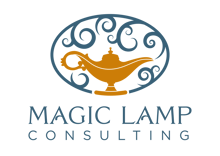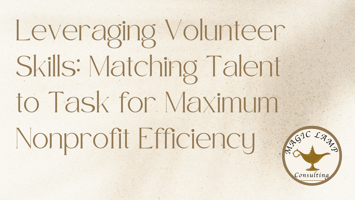Grant Management Essentials: Tracking, Reporting, and Maintaining Compliance
Managing grants effectively is critical to the success and sustainability of any nonprofit organization. Whether a grant funds a specific program, supports general operations, or drives a large-scale initiative, the responsibility that comes with receiving this funding cannot be overstated. Proper grant management not only ensures that your organization remains compliant but also builds your credibility with funders, increasing the likelihood of securing future support. As Darren Walker, President of the Ford Foundation, once said, “Accountability is the foundation of trust. And trust is the currency of philanthropy.” To maintain this trust, nonprofit leaders must embrace best practices in tracking, reporting, and maintaining compliance.
The Importance of Grant Tracking
One of the first steps in effective grant management is setting up a robust system for tracking grant funds and their associated activities. Every grant comes with specific requirements—whether related to the use of funds, timelines, or reporting—and failing to meet these expectations can harm your organization’s reputation.
Tracking begins at the moment of award acceptance. It’s essential to read and fully understand the grant agreement, including the funder’s expectations around deliverables, eligible expenses, and reporting deadlines. Once the terms are clear, create a dedicated tracking system—either through specialized grant management software or a detailed spreadsheet—that captures all relevant information. The system should include the grant’s budget, key deadlines, and a record of expenses and activities.
Regularly reviewing the progress of your grant-funded projects is equally important. Schedule routine check-ins with your team to ensure activities align with the grant’s objectives and that spending stays within the approved budget. These reviews not only keep the project on track but also prepare your organization for seamless reporting.
Reporting With Precision and Clarity
Grant reporting is where nonprofits demonstrate their accountability to funders. A well-crafted report doesn’t just satisfy the requirements—it tells a compelling story of how the funding made an impact. To achieve this, nonprofit leaders should prioritize clarity, precision, and alignment with funder expectations.
Begin by collecting data throughout the grant period. Quantitative metrics, such as the number of individuals served or outcomes achieved, should be complemented by qualitative stories that highlight the human impact of your programs. For example, if a grant funded a workforce development program, include not only statistics about job placements but also testimonials from participants whose lives were changed.
It’s also important to structure your reports in a way that aligns with the funder’s guidelines. Many grantmakers provide templates or specific instructions for reporting; following these to the letter demonstrates your attention to detail and respect for their processes. When no template is provided, organize your report into sections that address objectives, activities, outcomes, and financial accountability. Use visuals, such as charts or infographics, to make complex data more accessible.
Transparency is key in reporting. If a project faced challenges or missed certain targets, be honest about what happened and explain how your organization is addressing these issues. Funders appreciate candor and problem-solving over evasiveness.
Staying Compliant: The Nonprofit’s Responsibility
Maintaining compliance with grant requirements is non-negotiable. Beyond meeting deadlines and delivering reports, compliance encompasses adhering to all legal, financial, and programmatic obligations outlined in the grant agreement.
Financial compliance is often where nonprofits face the greatest scrutiny. This involves keeping meticulous records of all grant-related expenses, ensuring that funds are used solely for their intended purposes, and maintaining documentation such as receipts and contracts. Working closely with your finance team or an external auditor can help ensure accuracy and compliance with Generally Accepted Accounting Principles (GAAP).
Programmatic compliance is equally critical. Nonprofits must ensure that grant-funded activities align with the agreed-upon scope of work. Deviating from the original proposal without prior approval can jeopardize the grant and future funding opportunities. If changes to the project become necessary, communicate promptly with the funder to request amendments to the agreement.
Finally, compliance with legal and regulatory requirements cannot be overlooked. Some grants, particularly those from government sources, come with additional layers of rules around procurement, labor practices, or data privacy. Familiarize yourself with these regulations and establish internal protocols to ensure adherence.
Building a Foundation for Future Funding
Effective grant management does more than satisfy current funders—it establishes your organization as a trustworthy and capable steward of resources. This reputation is invaluable when seeking future funding. Funders talk, and a track record of successful grant management can open doors to new opportunities.
To build this foundation, document and celebrate your successes. Share your impact stories not only in reports but also in public-facing communications such as newsletters, social media, and your annual report. Highlighting the outcomes of grant-funded projects demonstrates your organization’s capacity to deliver results and reinforces your commitment to transparency.
In addition to publicizing successes, nurture relationships with funders even after the grant period ends. Send a final thank-you note that summarizes the impact of their support, and invite them to stay engaged with your organization’s work. Building a personal connection can turn one-time funders into long-term allies.




